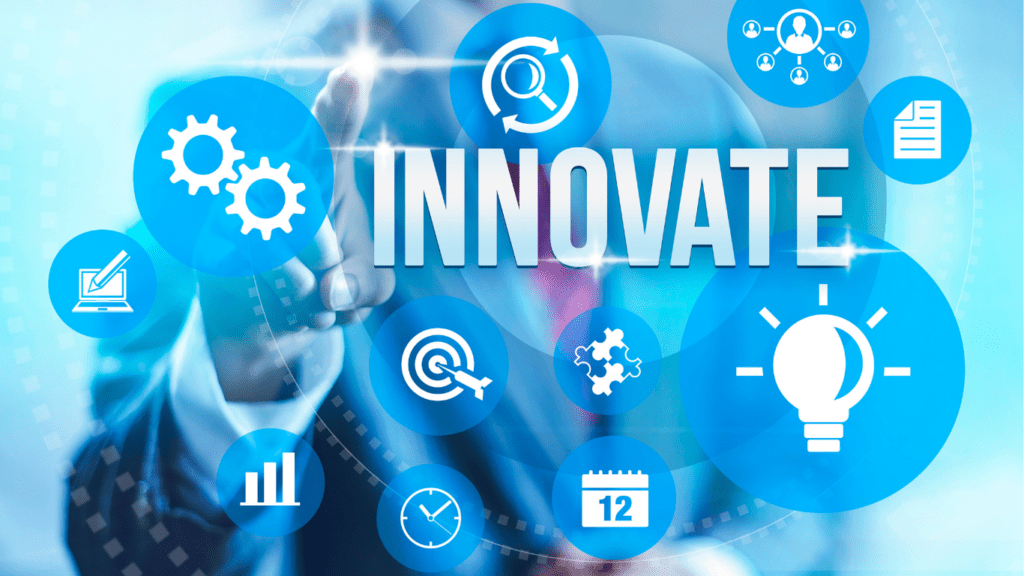Overview Of Tech Startups And Innovation
Tech startups combine agility, creativity, and technology to solve pressing issues. By focusing on scalable solutions, they often disrupt established industries and redefine markets. Their innovative processes explore emerging technologies like artificial intelligence, blockchain, and IoT.
These startups operate with lean methodologies to adapt quickly. Small teams and limited resources push them to prioritize efficiency and experiment with novel ideas. For example, ride-sharing platforms reimagined transportation, while telemedicine apps addressed healthcare accessibility.
Strategic problem-solving drives innovation in diverse sectors. Renewable energy startups thrive by developing low-cost, high-efficiency solutions. Edtech companies enhance learning experiences with adaptive, AI-driven tools.
Collaboration with venture capital firms and accelerators fuels innovation further. Funding and mentorship allow startups to refine concepts and scale operations.
Sectors Where Tech Startups Are Making An Impact
Tech startups are addressing critical challenges across multiple industries, transforming traditional practices with innovative solutions. Their efforts span diverse fields, driving efficiency, accessibility, and sustainability on a global scale.
Healthcare And Biotechnology
Healthcare startups use AI, machine learning, and wearable tech to improve patient outcomes and streamline care delivery. Examples include telehealth platforms providing remote medical consultations and AI-driven diagnostic tools identifying diseases at early stages. Biotechnology startups focus on gene editing, personalized medicine, and vaccine development, addressing treatment gaps and improving public health.
Renewable Energy And Sustainability
Startups in renewable energy deploy efficient energy storage systems, solar panel technology, and wind energy innovations to reduce carbon footprints. Companies offering electric vehicle battery technology and smart grids contribute to sustainable urban development. Waste management startups utilize AI to optimize recycling and promote circular economies.
Education Technology
Edtech startups enhance learning through AI-based adaptive software, virtual classrooms, and gamified courses. These tools allow personalized education, closing gaps in traditional teaching methods. Platforms like massive open online courses (MOOCs) enable global access to quality education, empowering learners in remote and underserved regions.
Financial Technology (FinTech)
FinTech startups leverage blockchain, AI, and mobile technology to simplify banking, enhance financial inclusion, and reduce transaction costs. Examples include digital payment solutions, peer-to-peer lending platforms, and robo-advisors for investment strategies. Fraud detection systems powered by AI also improve financial security for users worldwide.
Innovative Approaches To Solving Real-World Problems

Tech startups are employing groundbreaking methods to address global challenges. By integrating advanced technologies and fresh perspectives, these companies are revolutionizing how we solve real-world problems.
Harnessing Artificial Intelligence And Machine Learning
I see startups utilizing AI and machine learning to redefine industries. Healthcare firms use AI for early disease detection and personalized treatment recommendations. For example, AI algorithms analyze medical imaging to identify anomalies with greater accuracy. Similarly, in agriculture, machine learning enables precision farming by predicting optimal sowing times and resource allocation. This enhances efficiency and maximizes output.
Leveraging Data Analytics And Big Data
Startups are transforming decision-making processes through data analytics and big data utilization. They’re aggregating data from IoT devices, social media, and sensors to analyze patterns and trends. For instance, urban planning startups analyze traffic flow and population density to design smarter cities. In retail, data analytics optimizes inventory management and improves customer targeting, driving better business outcomes.
Embracing Green Technologies
I notice startups deploying green technologies to address environmental challenges. Renewable energy firms are creating innovative solutions like next-gen solar panels and wind turbines to reduce reliance on fossil fuels. Startups in waste management explore upcycling and bio-based materials to minimize landfill contributions. Some companies even develop carbon capture systems to combat climate change by reducing emissions at the source.
Challenges Faced By Tech Startups
Tech startups often encounter significant challenges when navigating the path from concept to execution. These hurdles can impact their ability to innovate and scale effectively.
Funding And Resource Constraints
Securing adequate funding and resources is one of the biggest challenges. Limited access to capital often prevents startups from developing their products or expanding operations. Many early-stage companies rely on venture capital, angel investors, or crowdfunding platforms, but intense competition for these resources can make acquiring funds difficult. Without sufficient financial backing, startups face prolonged development timelines, talent acquisition issues, and operational delays.
Regulatory And Compliance Barriers
- Complex regulatory frameworks create obstacles for startups.
- Navigating industry-specific rules, such as data privacy laws for fintech or clinical trial regulations in biotech, requires substantial time and expertise.
- Startups in highly regulated industries often struggle to allocate resources for compliance, which can delay product launches or hinder market entry.
Furthermore, inconsistent international regulations complicate scaling initiatives for startups with global ambitions, making cross-border operations particularly challenging.
Competition And Market Dynamics
High competition and rapidly changing market conditions add pressure. Established companies benefit from brand recognition and economies of scale, making it difficult for newer startups to gain market share. Additionally, changing customer preferences and emerging technologies require constant adaptability. Startups that fail to differentiate themselves or keep pace with innovation risk losing relevance in crowded markets, regardless of their initial promise.
Success Stories Of Innovative Startups
Tech startups are achieving remarkable results, solving practical challenges, and delivering measurable impact across various sectors. Here are examples of transformative efforts reshaping industries and lives.
Transforming Communities Through Smart Solutions
Startups are revitalizing urban ecosystems by creating smarter, more connected cities. One standout example is Sidewalk Labs, which leverages IoT and big data to optimize urban planning, reduce energy use, and enhance transportation efficiency. Similarly, Zipline uses drone technology to deliver medical supplies to remote regions, drastically reducing delivery times in rural communities. Each of these startups demonstrates how localized solutions can drive global change.
Revolutionary Products And Services
Innovative startups are consistently bringing groundbreaking products to market. Tesla disrupted the automotive industry by producing electric vehicles with improved range and affordability, setting new standards for sustainable transport. Meanwhile, Beyond Meat revolutionized food production by creating plant-based protein substitutes that cater to environmentally-conscious consumers. These startups’ products reflect how ingenuity can reshape traditional industries and cater to modern demands.



